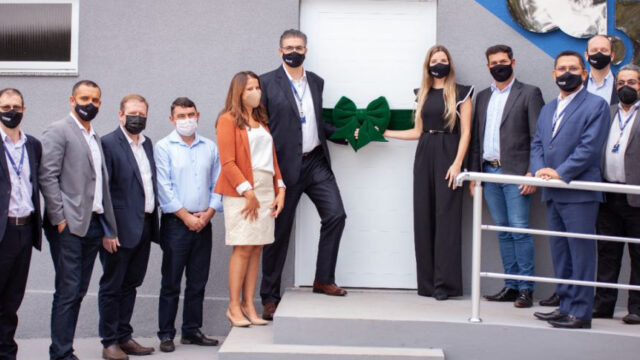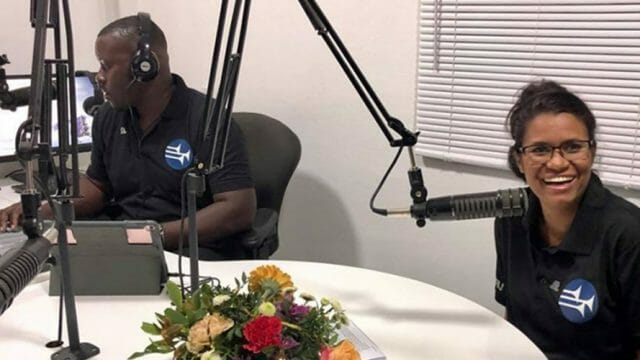European Adventist church regions connect to train dozens of family ministries leaders.

Seventh-day Adventist family ministries leaders across the Trans-European Division (TED) and the Inter-European Division (EUD) joined forces for their annual training program, held April 9-14, 2021. This year, due to travel restrictions, the training event for leaders was held virtually, under the theme “Understanding, Supporting, and Reaching Families.”
According to organizers, up to 70 family ministries leaders met on Zoom for each session, almost doubling the in-person participation of previous years. The increase was possible after organizers decided to invite every family ministries leader across both church regions.
The family ministries training program has been designed for ministry leaders, pastors, and laypeople interested in furthering their knowledge about families and relationships. The three-year program contains 12 modules. Together they provide information and resources to help leaders deliver family ministries seminars and effective family-based outreach in their communities.
The 2021 training covered four topics: Family Evangelism, Families in Society, Human Development, and Making Sabbath a Delight. In the opinion of participants, the sessions were highly professional and practical. Despite being delivered by Zoom, the training included working in groups, exchanging ideas, and even taking part in multisensory learning experiences. Presenters turned out to be not only specialists in their fields but also professional communicators. They provided research-based, accessible material and supported the theory with practical examples from their personal experiences and ministry.
During the opening worship, Willie and Elaine Oliver, Adventist Church family ministries director and co-director respectively, pointed out that “a family with a relationship of love and genuine spirituality is one of the most attractive testimonies” for the Gospel. “Inviting visitors to such a home is a powerful factor in leading people to Christ,” they emphasized.
Each year, a different aspect of family spirituality is taught on Saturday (Sabbath). This year, TED family ministries director Karen Holford led out in a morning of activities exploring Sabbath as a day of delight. This included an online interactive webinar in which participants could use simple, everyday materials to experience the blessing and wonder of Sabbath through their different senses.
Sunday’s workshops concentrated on Family Evangelism. Gábor Mihalec, who has written books on relationships, shared how families can become the means for growing the church. Later, László Szabó discussed ways in which family dynamics have changed in comparison with previous generations.
Mihalec combined a deep analysis of Scripture with the experience he has gained through his dynamic ministry. He encouraged a serious change in the church’s approach to winning people for Christ — to win the interested individual and the entire family. “In the New Testament, there are several stories of conversions, the consequence of which is the acceptance of Christ by all the household,” he said. “The lack of such an attitude often causes us to divide marriages and families at a time when conscious action could help them come to Christ, or at least become more sympathetic to converted family members,” he explained.
Julia Wanitschek raised the topic of building a bond with a child in the early stages of his or her development. “Underdevelopment in this area will not only affect an individual but will bring consequences in future generations,” she explained. “Conscious assessment of dysfunctions and working with God’s help can bring about positive changes and enable the building of healthy relationships.”
Cornelia Dell’mour showed how electronic devices are impacting the human mind, social relationships, and spiritual lives. Holford, on the other hand, discussed domestic violence. She shared practical suggestions on how to support victims of violence so as not to harm them even more, especially when the violence is related to restriction of freedom and is a threat to the victim’s life.
Claudio and Pamela Consuegra, family ministry directors in the North American Division, talked about single parenting. They discussed the realities and struggles a single mother or father usually faces. They also shared ways in which the church community can support these parents.
Karsten Stank, from Germany, spoke about parenthood, respect for children, and non-violent communication. During his presentation, he drew on many examples from his family and his practice as a pastor and family counselor. “Parents may feel burdened or even exhausted during child-rearing, and we should do everything possible to support and help them as they are shaping the next generation,” he said.
Family ministries leaders emphasized that the area leaders’ role is not necessarily providing information to people, as nowadays anyone can find out what they need to know. “The challenge of family ministries is to help people to apply the theoretical knowledge in practical ways that may enrich their everyday lives and relationships,” they said.
The original version of this story was posted on the Trans-European Division news site.








